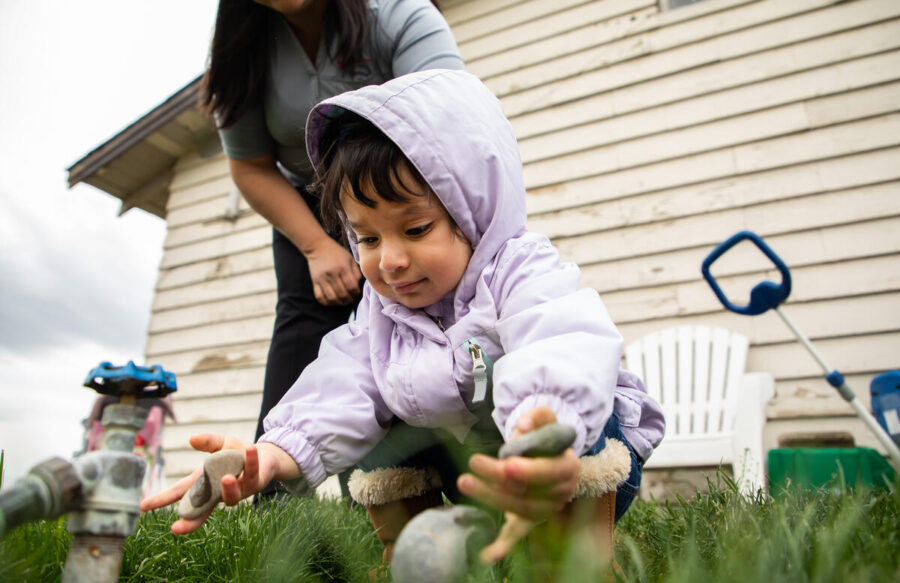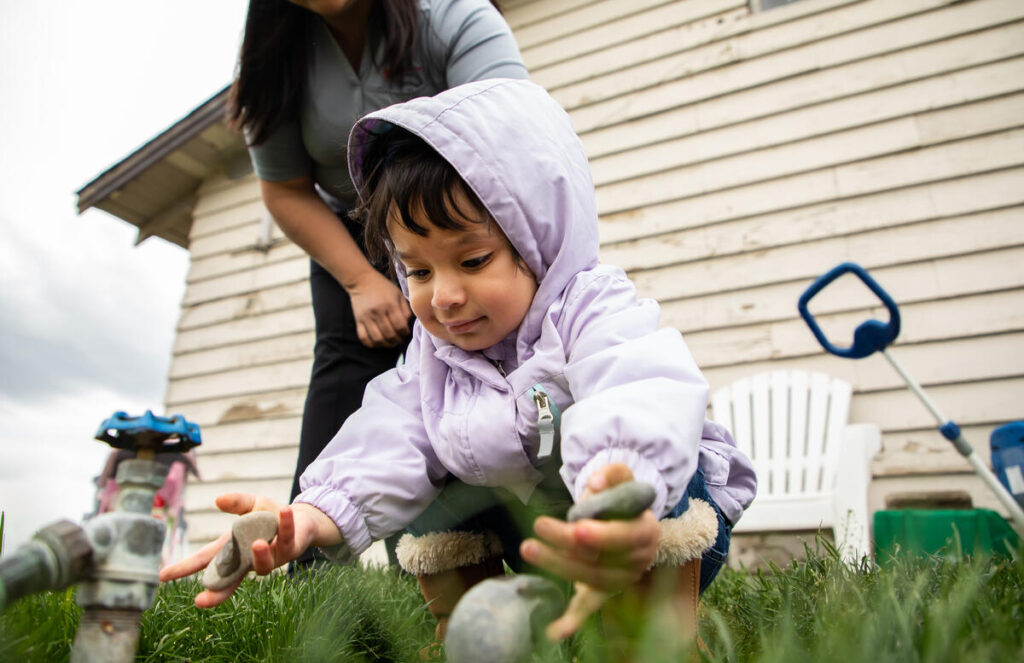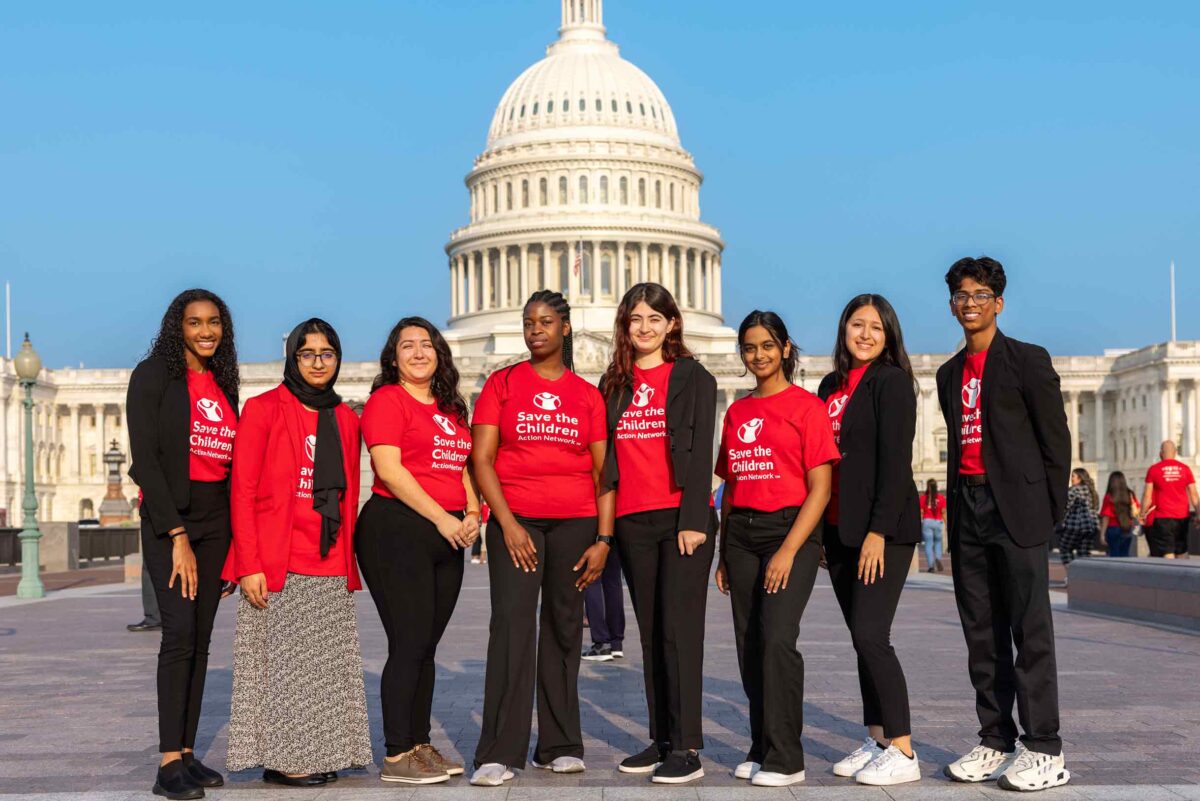Resources
Rural Polling
Rural voters support investments to address hunger & provide quality, affordable child care
Save the Children and Save the Children Action Network (SCAN) commissioned a poll of rural and small town voters from the bipartisan research team of New Bridge Strategy (R) and Hart Research (D). The study found that rural voters nationally are facing many challenges, including concerns about feeding their families and affordability of quality child care, which are having profound and personal impacts on them and people they know. Additionally, the study found strong bipartisan support for a number of policy remedies to address these challenges, including policies that increase government funding.
Rural Voters Have Been Hit Hard by Inflation
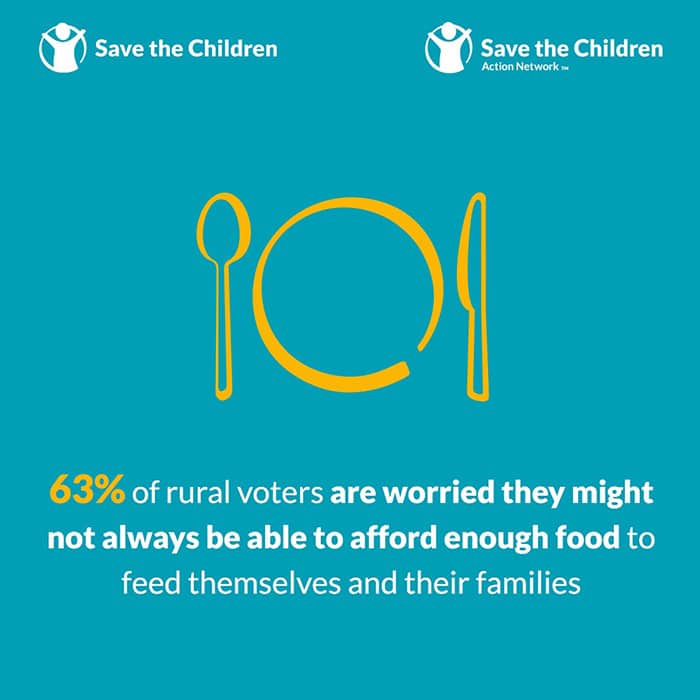
Rural Voters Have Been Hit Hard by Inflation
Rural voters deem inflation to be the greatest challenge facing rural families. In an open-ended question about the biggest problems facing families in rural areas, respondents are most apt to volunteer gas prices and inflation. When asked about specific problems in their area, 68% say children not having enough to eat is a serious problem.
Rural Voters Are Struggling to Feed Their Families
Similarly, 6 in 10 rural voters are worried they might not be able to afford enough food to feed themselves and their families over the next year. 63% of all rural voters say they are worried, with nearly a quarter saying they are “very worried.” Among parents, the proportion jumps to 77% who say they are worried they might not be able to afford enough food to feed their family.
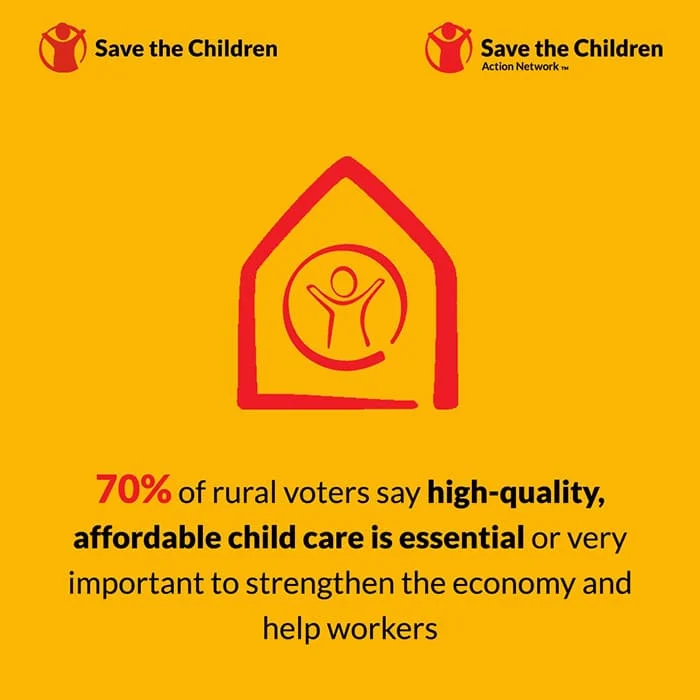
Rural Voters Say Access to Affordable, Quality Child Care Has Gotten Worse Since the Pandemic
Rural Americans believe that access to affordable, quality child care and early childhood education is increasingly out-of-reach for many families. In multiple questions, rural voters tell us that “care for your children” is lacking in their community, costs too much, and that access to quality, affordable care has gotten worse in the last few years since the pandemic.
- 55% say the availability of high-quality and affordable child care has gotten worse since the pandemic, while 31% say it has gotten better or stayed the same and 13% are unsure.
- A majority say there are only some or very few high quality, affordable early education programs in their area; 20% say all or most are high-quality and affordable, 26% say half are, 32% say some and 22% say very few.
Rural Voters Across the Political Spectrum Support Government Action to Address the Twin Crises of Hunger and Lack of Quality, Affordable Child Care
Rural voters are overwhelmingly supportive of policy solutions for hunger. Of the proposals we tested, all of them received support from nearly 4 in 5 rural voters. In fact, more than 7 in 10 Republican voters support every policy proposal to address hunger, with even greater levels of support from Independents and Democrats.
Ranked by % Total Support
Strongly Support
Total Support
Simplifying the retailer application process so that more operations such as farmers markets can accept food assistance benefits and people in rural areas and smaller communities have more options to access fresh food. **
58%
93%
Ensuring more children in school have access to food through “backpack” programs where they can bring food home, or food pantries at school sites. **
59%
92%
Offering more programs that increase access to food for hard-to-reach communities such as those that allow food boxes to be shipped or operate mobile pantries that go to outlying areas to better reach families. *
56%
91%
Expanding the Double Up Food Bucks program that enables recipients to match what they spend on fruits and vegetables, up to $20 a day. That means families can get twice the fresh fruits and veggies in their budget. *
53%
89%
Allowing families who receive federal food assistance greater benefits to combat inflation and give them the opportunity to purchase fresh and healthy foods. *
55%
88%
Allowing those who qualify for other programs, like Medicaid or Head Start, to automatically qualify for food assistance programs. **
55%
86%
Continuing to allow people who qualify for WIC, the federal program that provides food to low-income pregnant women and children at risk of hunger up to age five, to meet with a representative online or via the phone to sign up for or renew their benefits, rather than in person. **
54%
86%
Allowing food assistance program benefits to be used for delivery fees so people in rural areas can receive home delivery of groceries. **
44%
79%
Thinking some more about this… Congress and a number of state legislatures will be considering some changes to programs that help families afford and access food. For each one please tell me whether you would support or opposed that particular change.
* National Sample A, N=506 **National Sample B, N=500
Rural voters see child care as important for strengthening the economy. Rural voters know the importance of high-quality, affordable child care to the economy, and this cuts across party lines. Overall, 70% of rural voters say it is essential or very important to strengthening the economy and helping workers with an additional 25% saying it is somewhat important. The percentage of voters who say it is essential or very important is 68% among Republicans, 64% among Independents, and 78% among Democrats.
Regardless of party, rural voters are supportive of every public policy proposal we shared with them to help address the shortage of affordable quality child care and early childhood education. Each of the proposals we tested (below) receives support from more than seven-in-ten Republican voters with even higher levels of support from Independents and Democrats. This is particularly impressive given that three of the four proposal mention using government funding specifically to address the problem.
% Total Support
Increase funding that is allocated for children with disabilities so that they are provided with child care and early childhood education that better meets their unique needs
56% Strongly Support
91%
Increase federal funding to states to create or build on their own programs that help middle and low-income families obtain quality child care while they work or attend school
47% Strongly Support
86%
Allow government funding to be used to attract and retain quality early childhood educators by increasing the $11.50 per hour average they make now and paying them similar wages to kindergarten teachers
43% Strongly Support
84%
Make the licensing process more streamlined and easier to meet by those who provide child care informally for family members, friends or neighbors while still ensuring the safety of children in their care and allowing them to access funding to improve the quality of child care they provide
34% Strongly Support
82%
Coming up, Congress and some state legislatures may be considering a number of proposals that provide more families the opportunity for their children to attend high-quality child care and preschool. For each one please indicate whether you would support or oppose that particular change.


